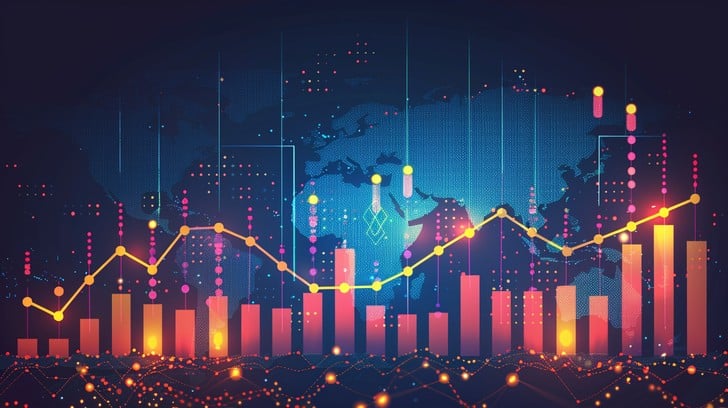The Fragile State of the Global Economy
In a world increasingly interconnected by trade, finance, and technology, economic instability has become a persistent challenge for policymakers, businesses, and individuals alike. The past few decades have witnessed a series of financial shocks, ranging from the 2008 global financial crisis to the economic disruptions triggered by the COVID-19 pandemic. These crises have revealed systemic vulnerabilities, calling into question long-standing economic models and requiring innovative policy solutions. Even as economists such as Jan Tinbergen once sought to design mathematical models to predict economic behavior, today’s challenges demand a more dynamic and adaptable approach.
Inflationary Pressures and the Cost of Living Crisis
The Surge in Inflation
Recent years have seen a dramatic rise in inflation, with prices for essential goods and services soaring worldwide. Central banks have responded by raising interest rates in an effort to curb inflation, but these measures have come at the cost of economic growth. The combination of supply chain disruptions, geopolitical conflicts, and labor market shifts has exacerbated inflationary pressures, leaving millions struggling to keep up with rising costs.
Energy and Food Prices
Energy markets have been particularly volatile, driven by geopolitical tensions and changes in global supply chains. The war in Ukraine, for instance, has significantly disrupted energy supplies to Europe, forcing nations to seek alternative sources and rethink their long-term energy strategies. Food prices have also surged due to supply chain constraints, climate change, and trade restrictions imposed by key agricultural producers.
The Labor Market and Wage Stagnation
The Post-Pandemic Workforce
The COVID-19 pandemic led to fundamental shifts in labor markets, as remote work, automation, and labor shortages reshaped employment patterns. While some industries have adapted well to these changes, others continue to struggle with recruitment and retention challenges. Wage stagnation remains a critical issue, as salaries have failed to keep pace with inflation, diminishing the purchasing power of workers worldwide.
The Rise of the Gig Economy
The gig economy has expanded rapidly, offering flexible work opportunities but often lacking stability and benefits for workers. While some view this trend as a necessary evolution of modern labor markets, critics argue that it undermines traditional employment protections and exacerbates economic inequality. Governments are now grappling with the challenge of regulating gig work to balance flexibility with worker security.

Geopolitical Tensions and Economic Uncertainty
Trade Wars and Supply Chain Disruptions
Global trade has faced mounting challenges as nations adopt protectionist policies and engage in trade wars. The U.S.-China trade conflict, for example, has had far-reaching consequences for global supply chains, increasing costs for businesses and consumers alike. The shift towards reshoring and regionalized supply chains signals a move away from the hyper-globalized economy of the past decades.
The Impact of Sanctions and Economic Warfare
Sanctions have become a prominent tool in international diplomacy, with major economic powers using them to exert pressure on rival nations. While sanctions can serve as a means to deter aggressive actions, they also have unintended economic consequences, often harming ordinary citizens more than political elites. The ripple effects of sanctions are felt across financial markets, further contributing to global economic volatility.
Technological Innovation and Its Disruptive Effects
The Digital Transformation of Finance
Financial technology (FinTech) has revolutionized banking, payments, and investment. Cryptocurrencies, blockchain technology, and digital banking have provided new opportunities for financial inclusion, but they have also introduced regulatory challenges. The collapse of major cryptocurrency platforms and concerns over digital fraud highlight the risks associated with this rapidly evolving sector.
Automation and Artificial Intelligence
Automation and artificial intelligence (AI) continue to reshape industries, increasing efficiency but also displacing traditional jobs. While technological advancements can lead to productivity gains and economic growth, they also raise concerns about job security and income inequality. Policymakers must navigate the fine line between fostering innovation and ensuring a fair distribution of economic benefits.
The Role of Central Banks and Government Policies
Monetary Policy and Interest Rates
Central banks play a crucial role in managing economic stability through monetary policy. In response to inflationary pressures, many central banks have raised interest rates, aiming to slow down excessive spending and borrowing. However, higher interest rates also increase the cost of debt, affecting businesses, homeowners, and governments alike.
Fiscal Policies and Government Spending
Governments have deployed extensive fiscal policies to stimulate economic recovery, particularly in the wake of the pandemic. While stimulus packages have provided short-term relief, rising national debts pose long-term challenges. Striking a balance between economic support and fiscal responsibility remains a key concern for policymakers worldwide.
Climate Change and Economic Sustainability
The Cost of Environmental Inaction
Climate change presents a significant threat to global economic stability. Extreme weather events, rising sea levels, and environmental degradation impose substantial costs on economies. The transition to sustainable energy and green technologies requires significant investment but also presents opportunities for job creation and economic growth.
Green Finance and ESG Investing
Environmental, Social, and Governance (ESG) investing has gained traction as businesses and investors seek to align financial goals with sustainability objectives. While ESG initiatives promote responsible business practices, concerns remain about greenwashing and the true impact of these measures. Regulatory frameworks are evolving to ensure transparency and accountability in sustainable investing.
The Future of Global Economic Cooperation
Multilateral Institutions and Economic Governance
International organizations such as the International Monetary Fund (IMF), the World Bank, and the World Trade Organization (WTO) play vital roles in fostering global economic stability. However, the effectiveness of these institutions has been called into question, with critics arguing that they need reform to address contemporary challenges more effectively.
Regional Economic Alliances
Regional economic alliances, such as the European Union and the ASEAN Economic Community, have demonstrated the benefits of economic integration. However, rising nationalism and geopolitical tensions have challenged the stability of these alliances. The future of economic cooperation will depend on the ability of nations to navigate political differences while fostering mutually beneficial economic ties.
Conclusion: Navigating an Uncertain Future
The global economy is at a crossroads, facing unprecedented challenges that require adaptive policies and international cooperation. From inflationary pressures to technological disruptions, economic decision-makers must balance stability with innovation. The coming years will be crucial in determining whether nations can build a more resilient and equitable economic system capable of withstanding future shocks.












